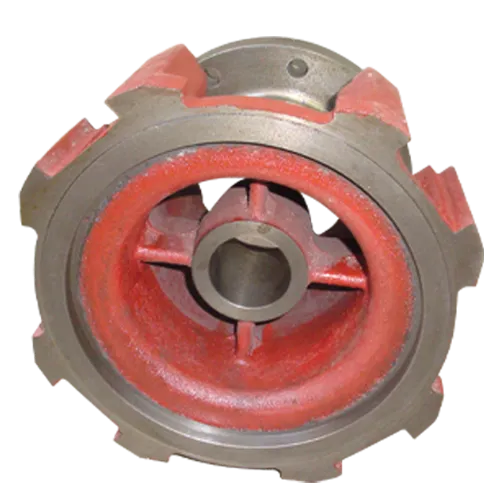Mobile:+86-311-808-126-83
Email:info@ydcastings.com
Engine-Driven Water Pump for Enhanced Car Performance and Efficiency
The Role of Water Pumps in Engine Cooling for Automobiles
In the automotive industry, engine efficiency and longevity are paramount concerns. One of the critical components that contribute to this is the water pump. The water pump plays a fundamental role in regulating engine temperature, ensuring optimal performance, and preventing overheating. This article explores how water pumps work in car engines, their importance, and advancements in technology that enhance their efficiency.
At its core, a water pump is responsible for circulating coolant through the engine block, radiator, and other critical components. Typically driven by the engine's crankshaft, the water pump operates continuously while the engine is running. It pushes coolant from the radiator through the engine block, where it absorbs heat generated during combustion. After the coolant gathers this heat, it flows back to the radiator, where it is cooled down before re-entering the engine. This cycle is crucial for maintaining the engine's optimal operating temperature.
The Role of Water Pumps in Engine Cooling for Automobiles
In recent years, advancements in water pump technology have significantly improved their functionality and reliability. Traditional mechanical water pumps, which are belt-driven, have been largely effective but can be prone to wear and tear. The introduction of electric water pumps has been a game changer. These pumps operate independently of the engine speed, allowing for precise control over coolant flow. Electric water pumps can adjust their performance based on engine temperature, which not only improves efficiency but also reduces fuel consumption and lowers emissions.
water pump engine car

Moreover, the integration of smart technologies has led to the development of water pumps that can communicate with other vehicle systems. In modern vehicles, the engine control unit (ECU) can make real-time adjustments to the water pump operation based on various factors, such as engine load, driving conditions, and temperature fluctuations. This level of sophistication enhances cooling performance and contributes to overall vehicle efficiency.
Additionally, the materials used in water pump manufacturing have evolved. Traditionally, water pumps were made from cast iron or aluminum. Today, manufacturers are exploring advanced composites and lightweight materials that offer better corrosion resistance and decreased weight. This leads to improved fuel efficiency, as lighter components can reduce the overall weight of the vehicle, contributing to better mileage.
Maintenance is also crucial for extending the life of a water pump. Regular checks and servicing of the cooling system can prevent issues like leaks or mechanical failures. Drivers should be aware of warning signs, such as overheating engines, coolant leaks, or unusual noises from the pump area, indicating that professional attention is required. Proactive maintenance ensures that the water pump operates at its best, safeguarding the engine against potential damage.
In conclusion, water pumps are critical components of automobile engines, playing a vital role in temperature regulation and overall vehicle performance. With advancements in technology and materials, modern water pumps offer enhanced efficiency, reliability, and integration with vehicle systems. As vehicles continue to evolve towards greater sustainability and efficiency, the water pump will remain an indispensable contributor to engine health and automotive innovation.
-
Why Should You Invest in Superior Pump Castings for Your Equipment?NewsJun.09,2025
-
Unlock Performance Potential with Stainless Impellers and Aluminum End CapsNewsJun.09,2025
-
Revolutionize Your Machinery with Superior Cast Iron and Aluminum ComponentsNewsJun.09,2025
-
Revolutionize Fluid Dynamics with Premium Pump ComponentsNewsJun.09,2025
-
Optimizing Industrial Systems with Essential Valve ComponentsNewsJun.09,2025
-
Elevate Grid Efficiency with High-Precision Power CastingsNewsJun.09,2025











